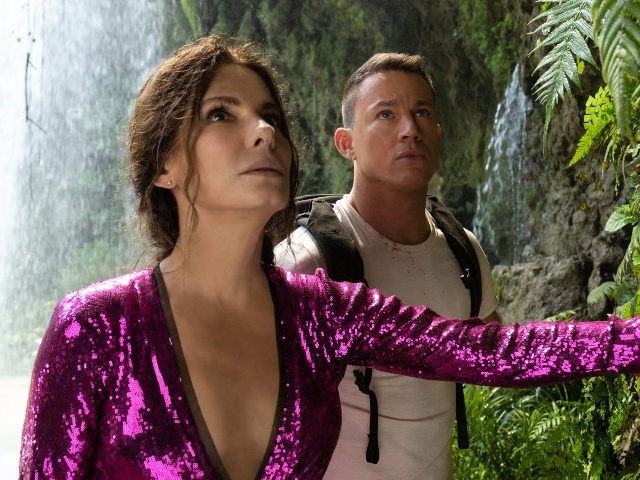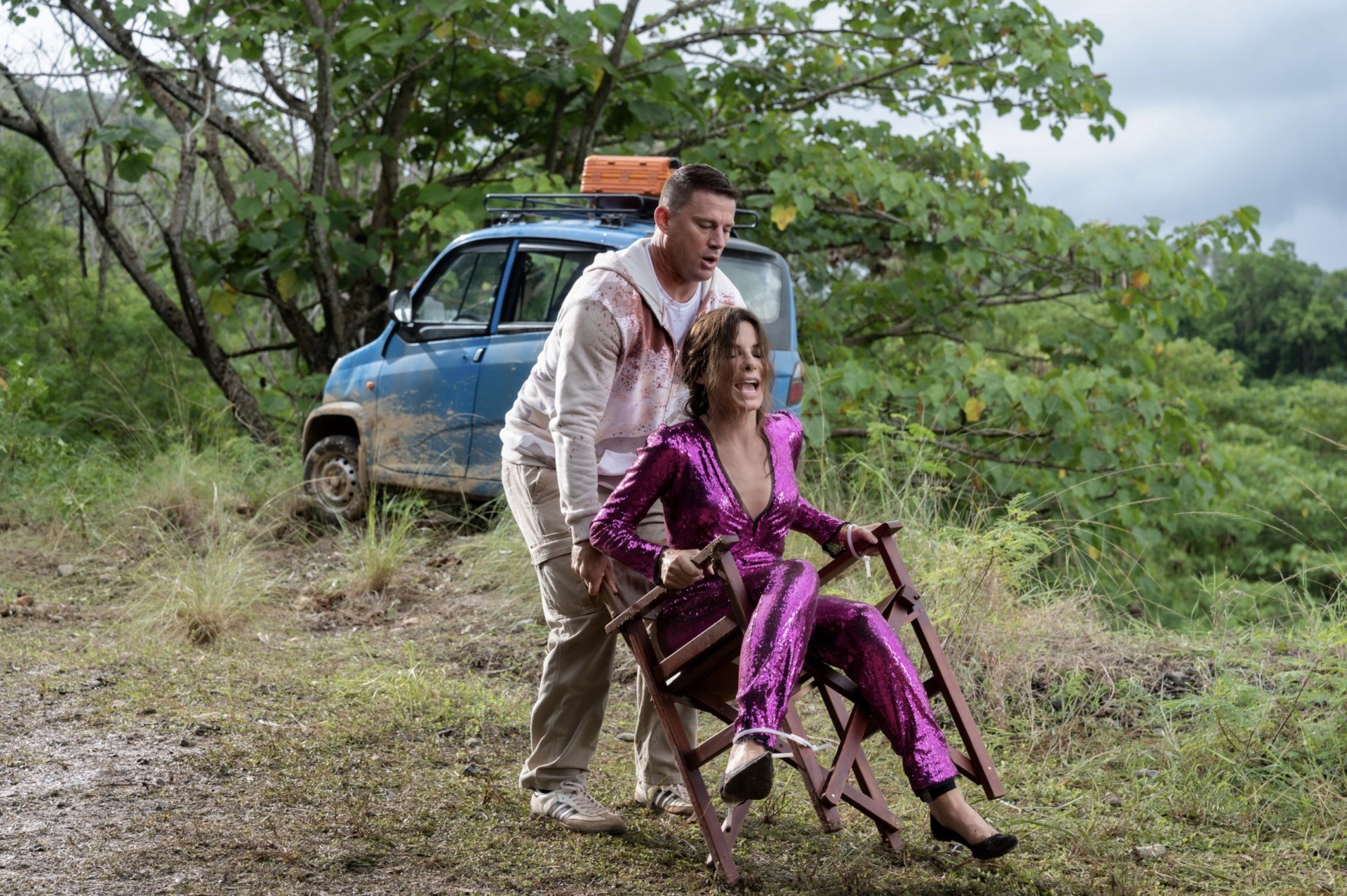The Lost City, a romantic-adventure-comedy starring Sandra Bullock and Channing Tatum, is a good, old-fashioned charmer that’s all too rare these days.
Younger folks will compare Lost City to Tropic Thunder (2008). Those of us of a certain age will compare it to Romancing the Stone (1984). Both comparisons are apt, and both of those movies are superior to Lost City, but I’m not here to quibble.
Sandra Bullock plays Loretta Sage, a lonely, widowed, near-agoraphobic best-selling author of bodice-ripping romance novels. Channing Tatum is Alan, her Fabio-inspired model, the guy who’s appeared shirtless on every title in the wildly popular franchise she is now bringing to an end.
There’s more to Loretta than meets the eye. Her real-life knowledge of ancient cultures allows her to add credibility to her adventure tales involving burial tombs and lost cities, and exotic treasures. Unfortunately, this knowledge also gets her in trouble. Abigail Fairfax (Daniel Radcliffe) is looking for some lost treasure of his own and kidnaps Loretta. And so, off she goes to the setting of her novels: a tropical island, a lost city, and a volcano on the verge of blowing its top.
Eager to save Loretta is the hapless Alan, who’s secretly in love with her and eager to prove himself as something more than man meat. For help, he brings along Jack Trainer — a character that gives Brad Pitt the amusing opportunity to poke good-natured fun with his iconic image as the impossibly handsome guy able to handle himself in any situation.
The Lost City is never as hilarious as it wants to be. The subplots involving Loretta’s agent and social media manager could have been jettisoned, but it does entertain; it’s sweet and romantic and delivers a nice message.
The movie’s theme revolves around how Loretta’s mourning of her dead husband and seclusion have turned her into a harpy, a judgmental snob filled with contempt for everyday people, including her own readers (and Alan), who she sees as morons. In her mind, the success of what she calls “my schlock” proves that she’s superior to the very people who made her so successful. At one point, she describes herself as a “sapiosexual,” or someone who’s only attracted to intellect. Alan is no intellectual, but he risks his life to rescue her, is eager to protect her, and is a decent guy. He’s also no dummy.
That’s a heartening theme, especially coming from our pop culture masters in Hollywood who more and more see themselves as our betters and our moral superiors. Bullock, one of the few remaining movie stars in the world, obviously doesn’t hold her fans in contempt.
This is also a return to a well-worn concept where we get to watch circumstance and an everyday guy cut an arrogant and beautiful woman down to size. Alan is no John Wayne or Robert Mitchum, but in his own kind, patient, and decent way, he brings her down a few pegs, which is part of the fun.
I suspect Bullock has another hit on her hands.
P.S. I also saw Channing Tatum’s Dog yesterday. It’s been defying box office odds, and I wanted to see why. Well, Dog is just a solid, moving story about a veteran (Tatum) dealing with shell shock and Lulu, the troubled military dog he’s been tasked with delivering to his former owner’s funeral and then having destroyed.
Dog is a sweet, little movie filled with nice people and a lovely message about the decency of everyday people, of the importance of seeking a higher power to pull yourself out of your own personal hell, and the undeniable fact that dogs are uniquely special — are almost magical creatures that prove God does indeed love us.
Follow John Nolte on Twitter @NolteNC. Follow his Facebook Page here.


COMMENTS
Please let us know if you're having issues with commenting.